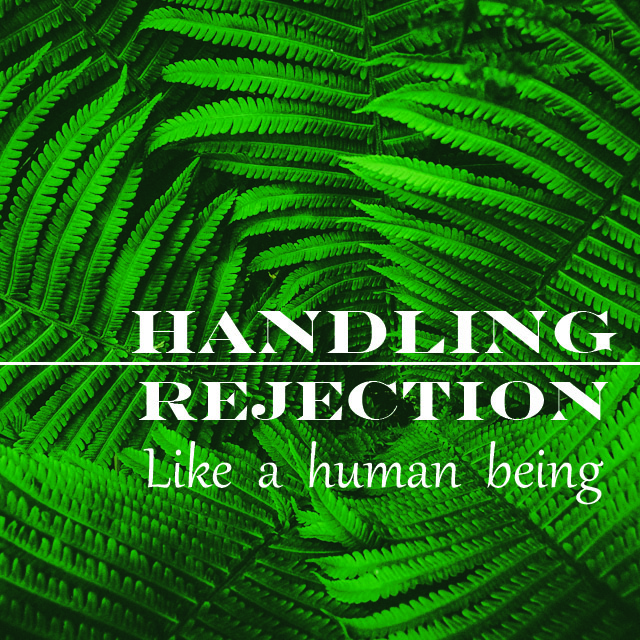Now and then, we often stumbled in a rejection. A disappointing situation where we didn’t expect to happened. Unfortunate events such as ; not being accepted at the designated school, failing a test, or being declined for a reconciliation with a specific person. All of these made us feel rejected. Feelings of being unwanted, incompetent, or simply not good enough, arise at these occasions.
Rejection can even make a huge impact when they have happened several times, rapidly at short intervals. The intensified emotional breakdowns can lead to mental health disorders that disrupted our whole other aspects of life. Though different individuals had their own unique durability, it is important to know how to handle rejection, and twist it as part of life lessons. It can even be a blessing in disguise.
The Four Types of Emotional Rejection
Let’s recognize the four types of rejection that implicates our daily life. From personal to professional environments. When we understood the underlying cause of the feeling, it can help to decrease or even overcome the situations. Solving it with clearer views, and in some cases, faster.
-
Love Rejection
Nothing hurts more than a love rejection. But above all, we need to highlight not all romantic rejections resulted in deep, or long bruises on our feelings. Some managed to get by, even less than 24 hours. This is where the surprises went in; discovering the actual weight of love we have, towards our object of affection.
-
Rejection in Professional Life
When we are rejected for work opportunities, once or twice in a longer intervals -not simultaneously can instils small or light discomfort. The real damage breaks through when facing constant rejections more than twice. Particularly in a difficult financial situations, and having fewer options of working alternatives. Not only does it lead to a slump in self-esteem, but feeling like a failure after a significant amount of contributions can trigger depression due to undervalued achievements.
-
Social Rejection
The feeling of being left out from community scenes, not being involved, or being uninvited to multiple events is also signs of rejection in social environments. Social rejections that occurred aggressively, or without confrontations, are frequently dismissed. The feelings are quite often overlooked as just “being sensitive” or a product of miscommunication. This will escalate the emotional situation to another level, due to unvalidated emotional hurt. These social circumstances, created implications of loneliness. Making the rejected ones feel invisible when considered to not have a significant role in the circle. This can happened in a different circles of society, may it be schools, residential communities, or among office colleagues.
-
Rejection in Family
The deepest wound of the entire species of rejection, and it bleeds like a forever-unhealed trauma. Our own descendants disowning us is like water trying to separate oxygen from the hydrogen. The water diminishes its wholeness and became a different substance. Let it be a father that cuts her legacy for his child, to a daughter that chooses to disconnect her parent over a matter of life choices (i.e unapproved marriage, paternity issue, etc). The scars will continue to influence the rejected one’s personality. It somehow place a gaping hole longing for consolations in all the wrong places.

Source photo : www.unsplash.com/stevejohnson
Resolving Rejections
Research conducted by Naomi Eisenberger, PhD, at the University of California, Kipling Williams, PhD at Purdue University, also a few colleagues observed an fMRI scanner which indicated that social rejection can take a form resembling physical pain in the brain (Eisenberger, 2003). In a game called Cyberball, the subject of the experiment was later on excluded from a frisbee game. The game supposedly played by three players, including him but after a few minutes the other two stop feeding him the ball. The subject showed an increased stimulation in the dorsal anterior and anterior insular, parts that usually responded to physical pain. Eisenberger added that a broken-hearted person is similar to a person with a broken arm. Some people seem to bounce back over small mishaps of rejection, and some people had lingering emotional burdens afterward.
The stages remained the same each time, denial, anger, bargaining, depression, until finally acceptance. In social rejection scenes, some people succeeded to bounce faster, jumping the stages, and immediately seeking acceptance in other social settings. Some will act hypervigilance by still carrying the sensitive matter from the prior incident. The outcome is they became more alert to social cues. They bring more effort to impress and generously more approving in avoidance of conflict. Other individuals will take rejection differently by expressing their disappointment up front. Some are trying to put aggressive ways so that people would understand that they need the full attention of the anger they have. The latter can lead to a boomerang effect, a contrary of the acceptance they wish to achieve.
Coping Mechanism After Rejection
The healthiest way in coping with rejection is to just let it sink in, and permit your feelings to reveal their ‘true colors’ for a day, or two. The next step will be to return to the connections of your unconditional inner circles. The people we sometimes took for granted. The foundations of our daily life which either a kind neighbors, real friends, or family members that bring out the best of our qualities and recognize our strengths.
Positive vibes that come from trusted social interaction will promote good mood and calming hormones. It eventually will open your mindset that rejection is just a single episode of our entire life plot. Rejections may be a hint that we could take careful notes of it, peacefully. Nobody is perfect and it does not have to be, but introspection on our perspective once in a while is good. When you are not hired for a dream job, it isn’t always because of what we lack. Certain things happened because of multiple reasons and beating ourselves up for the unknown is not right on so many levels.
Take a walk or other types of exercise activities to help alleviate the tension and stress. Not getting what we want can also be the nature way of telling you to prepare for a blessing in the future. Saving our best for things we deserved better and serving a better purpose in return.
Eisenberger, N. I. (2003). Does Rejection Hurt? An fMRI Study of Social Exclusion. Science, 302(5643), 290–292. https://doi.org/10.1126/science.1089134
Author: Fraya
A writer and entrepreneur with profound interest in humankind research and insights. An avid coffee drinker and book hoarder. Hours and days spent in Jakarta.

